Happy Columbus Day!
Because of the Columbus Day/Indigenous Peoples Day holiday, this is the last issue of Shelf Awareness until Tuesday, October 10. See you then!
Because of the Columbus Day/Indigenous Peoples Day holiday, this is the last issue of Shelf Awareness until Tuesday, October 10. See you then!
 |
|
| Moon Palace is on the move. | |
Moon Palace Books, Minneapolis, Minn., is relocating to 3032 Minnehaha, just two blocks from the current location it moved to last year. Co-owner Jamie Schwesnedl told City Pages that he's been getting a "You're moving again?" reaction "from just about all sides since last month's announcement that his colorful little bookstore was leaving 3260 Minnehaha Ave. behind."
But that space was always meant to be a temporary home, what Schwesnedl called a "practice move" into a "slightly larger, intermediate shop that would lessen the learning curve as they looked for a much bigger, multi-function space," City Pages noted, adding that what he and co-owner/wife Angela "needed was a space with a dedicated events area, which they'll have when they move into their new new home."
"We just tried to really think about, 'How can we have a bookstore that has stuff going on in it beyond being a bookstore from dawn to dusk?'" Jamie Schwesnedl said. "And then we were like, 'You know what would be great? If we had some kind of restaurant-bar.' " They will be partnering with "an old friend who runs a restaurant in south Minneapolis and whose food we really love.
Current plans call for the bookstore to open by the end of October or early November, and the restaurant sometime in late fall or early winter.
.jpg) |
|
| Leah (l.) and Bea Koch | |
In a report on the state of racial diversity in romance publishing, Bea and Leah Koch, owners of the romance-only bookstore The Ripped Bodice in Los Angeles, Calif., have found that "for every 100 books published by the leading romance publishers in 2016, only 7.8 were written by people of color." And out of 20 romance publishers surveyed, half had fewer than 5% of their books written by people of color, while only three of the surveyed publishers had at least 10% of their books written by people of color.
The Koch sisters plan for this to be the first in an annual series of reports on diversity in romance publishing, and are hoping to complete the 2017 report within the first three months of 2018. They noted that they "do not want people to come away believing that [we] think racial diversity is the only kind of diversity that matters," but chose racial diversity as a starting point because racial discrimination remains "one of the largest barriers to equality in any professional industry and publishing is not immune."
They explained that since opening their store around a year and a half ago, they became "increasingly aware of the limited numbers of options for customers looking for traditionally published books written by people of color." They reported that though they tried to bring the issue up in conversations with publishers, it was difficult to make any headway without hard data, and the most common refrain was "we're working on it."
Said Leah Koch in a press release: "We're hopeful that by contributing this data to the discussion, we will start to see real change."
 HarperCollins is launching HarperCollins Leadership, an imprint providing "integrated, values-based material," on October 10.
HarperCollins is launching HarperCollins Leadership, an imprint providing "integrated, values-based material," on October 10.
The imprint will publish and produce content "designed for individuals looking for inspiration, insight and tools to help activate their inherent leadership potential," according to the company, which noted that in addition to traditional book publishing, the imprint "will focus on creating materials that can be consumed efficiently and concurrently in a variety of formats." Each book will be accompanied by a set of ancillary content, including online learning tools such as video courses, blogs, podcasts and digital apps.
"We are thrilled about this new opportunity to come alongside emerging leaders, both in businesses and communities, providing a versatile platform to communicate their messages in creative and effective formats," said Brian Hampton, senior v-p and publisher of HCL. "Working with authors who are passionate about empowering their professional communities is exciting, and we are eager to provide essential resources to help cultivate a new generation of leaders with this innovative publishing venture."
Jeff James, v-p of marketing for HCL, added: "Our goal is to make growth possible by offering leadership development content that is accessible and effective, whether you're driving to the office, sitting at a coffee shop, or picking the kids up from school. We believe personal and professional growth shouldn't be limited to traditional avenues or prohibited by a demanding schedule."
HCL will launch with the October 10 release of Building a StoryBrand: Clarify Your Message So Customers Will Listen by Donald Miller, followed, on January 16, by John C. Maxwell's Developing the Leader Within You 2.0.
French actor and author Anne Wiazemsky, who was "best known for her appearances in films of the French Nouvelle Vague and marriage to director Jean-Luc Godard," but also published more than a dozen books, died October 5, the Guardian reported. She was 70. Wiazemsky made her film debut at age 18 in Robert Bresson's Au Hasard Balthazar. She met Godard a year later, appeared in his 1967 film La Chinoise, and they married during the film's production. Wiazemsky would appear in other Godard films, but they divorced in 1979.
Granddaughter of novelist and Nobel literature laureate François Mauriac, Wiazemsky wrote "quasi-novelistic texts from her own experience," Jonathan Romney noted in the Guardian. "She wrote two quizzical, dispassionate books about her relationship with Godard, Une Année Studieuse (A Studious Year, 2012) and Un An après (One Year Later, 2015), the latter substantially forming the basis of [the recent film] Redoubtable. It's only a shame that what's lost in [Michael] Hazanavicius's film is a sense of the inner experience--the exhilaration, the confusion, the exasperation--that Wiazemsky conveys so candidly in her honed, highly classical prose style."
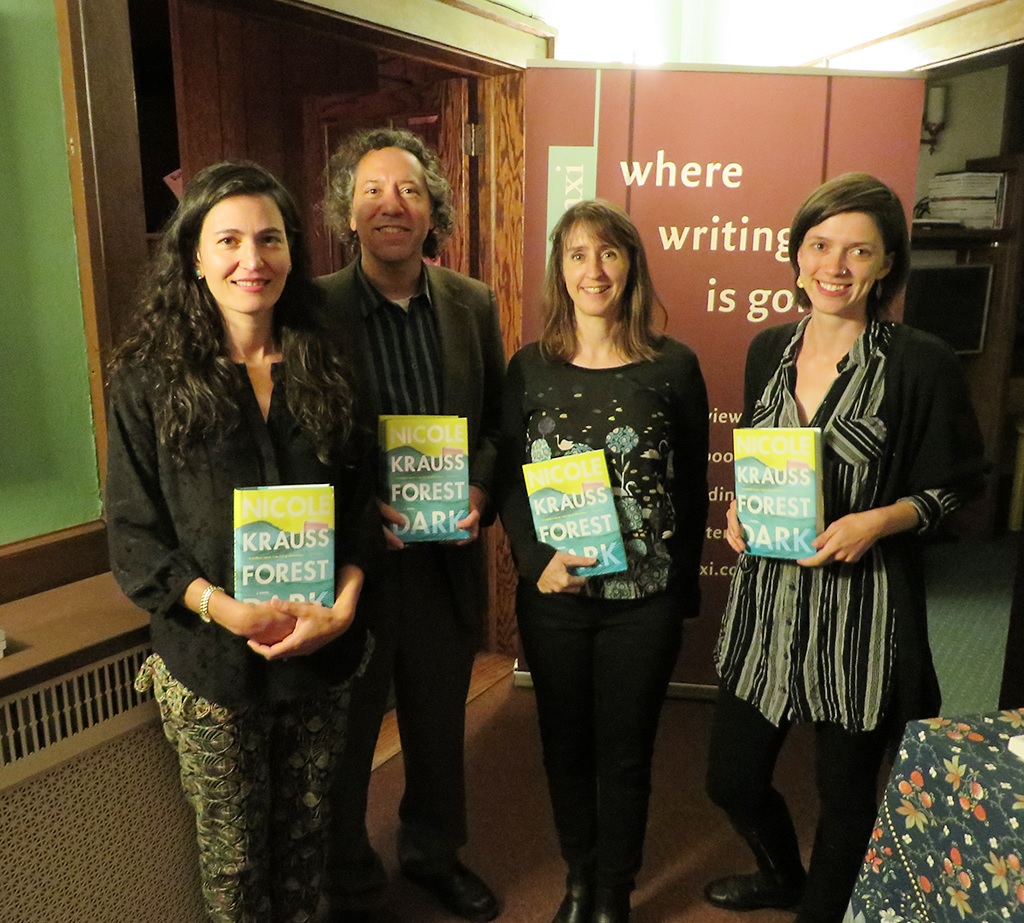
Nicole Krauss discussed her new book, Forest Dark (Harper), for the Rain Taxi Reading Series on Tuesday at Uptown Church in Minneapolis. The appearance was sponsored by Rain Taxi Review of Books, with book sales provided by Magers & Quinn Booksellers. From l.: Nicole Krauss; Rain Taxi editor Eric Lorberer, Rain Taxi art director Kelly Everding; and Magers & Quinn bookseller Kate Moening. (Photo by Pamela Klinger-Horn)
"My favorite writer, Kazuo Ishiguro, won the #NobelPrize2017 for Literature. I'd like to tell you what it means to me," Kenny Coble, a writer and a bookseller at King's Books, Tacoma, Wash., wrote yesterday morning to begin a compelling series of tweets.
You can read them on Twitter, or in The Stranger, which highlighted all of the tweets, noting: "So, behold: a thoughtful and touching and funny and rambling and wonderful thread from one of Ishiguro's closest readers."
Here's a brief selection from Coble's observations:
At the beginning of my bookselling career, twelve years ago, I worked for Borders Books & Music. Never Let Me Go was brand new in hardcover and I was new enough to all this that I had never heard of Ishiguro.
I may have told you this. One of the reasons I am a bookseller is because I was not given a book by an Asian writer until high school and I never want another kid to go that long without being exposed to a writer with their background.
Like many other writers of color around the world, writers of the Japanese diaspora are vastly underrepresented in the American book industry.
What also caught my attention: Ishiguro was not only Japanese, he was also British. He carried two lands in his body. This made sense to me as the son of a Japanese mother and an American father.
The thing is, I look for Ishiguro in everyone's writing. His sense of memory, of time's power, of love's relentlessness—they course through the veins of modern literature.
As ecstatic as I am that Kazuo Ishiguro won the #NobelLiteraturePrize, the next ten winners ought to be women. The @NobelPrize committee has some catching up to do when it comes to representation. 100 of 114 Nobel Lit Laureates are men.
The Stranger offered an excellent recommendation: "If you're in Tacoma, go buy an Ishiguro book from him--or any other kind of book for that matter. He's exactly the person you want to talk to."
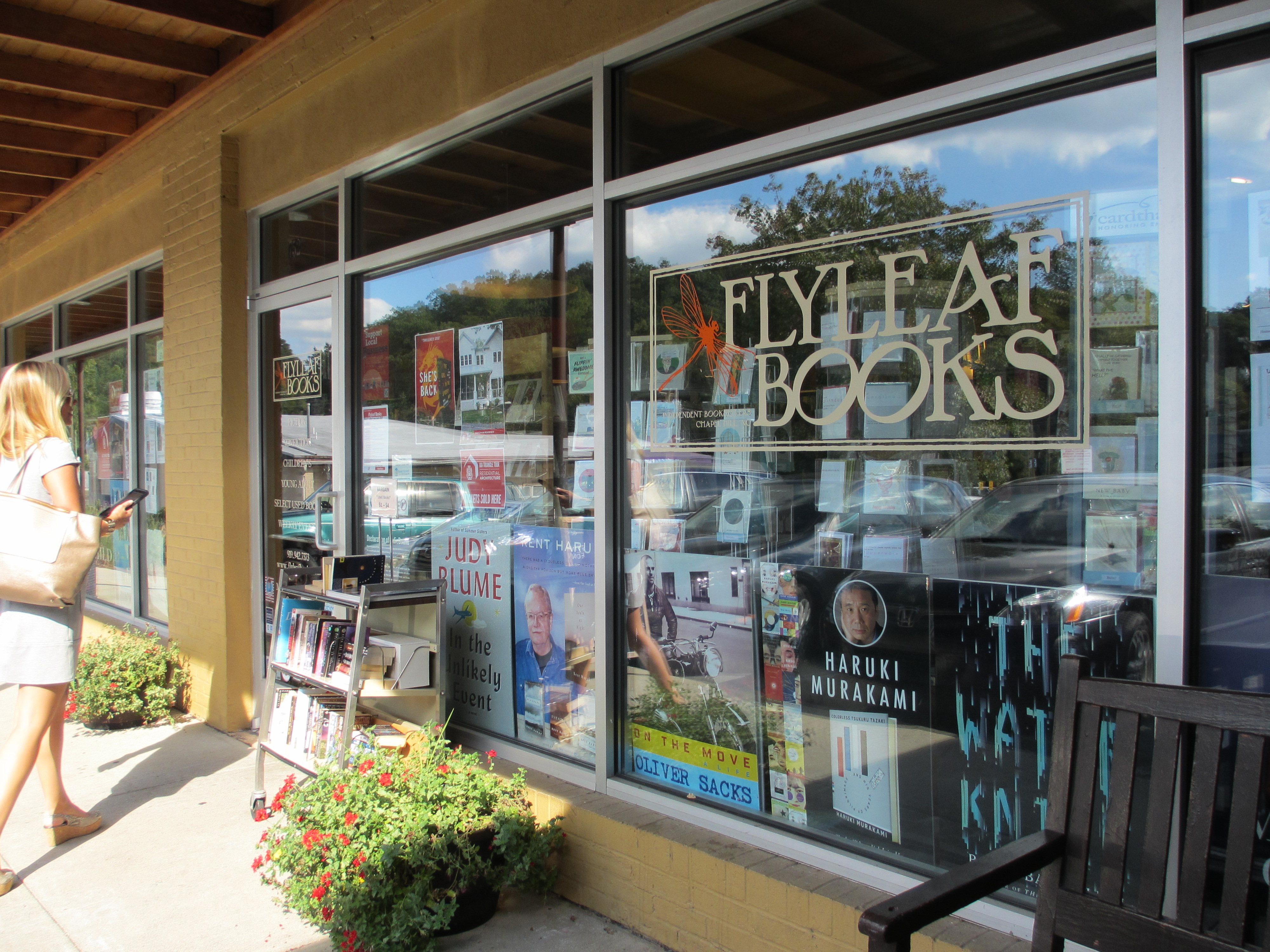 The Guardian launched its new series exploring "the best towns and small cities in the U.S." with a visit to Chapel Hill, N.C., which "blends liberal philosophy and Southern culture in a way that borders on the utopian. From its community-minded businesses and political activism to a music scene that has quietly influenced the global stage, it's the kind of town that doesn’t need to brag about itself or inspire a Portlandia to know its worth."
The Guardian launched its new series exploring "the best towns and small cities in the U.S." with a visit to Chapel Hill, N.C., which "blends liberal philosophy and Southern culture in a way that borders on the utopian. From its community-minded businesses and political activism to a music scene that has quietly influenced the global stage, it's the kind of town that doesn’t need to brag about itself or inspire a Portlandia to know its worth."
Among the highlights was a stop at Flyleaf Books, where the staff book recommendations "are like mini-works of literature in themselves: 'a phantasmagorical odyssey taking a Swiftian look at racial discrimination...' (that’s Colson Whitehead’s The Underground Railroad). This is a bookstore run by smart people with great passions and big ideas. There’s afternoon storytelling in the children’s section and for adults there are book clubs, author talks, poetry readings and 'humanities in action' events promoting civil discourse on some of the most divisive issues in the U.S. today. There are also some pretty hilarious lapel badges, like the ones depicting a bare-chested, superhero Justin Trudeau or the rather bleaker, 'Winter Is Here.' "
At Kensington:
Lynn Cully is being promoted to v-p, publisher, from publisher.
Adam Zacharius is being promoted to v-p, general manager, from general manager.
---
At Albert Whitman & Company:
Sue Tarsky has been promoted to publishing director.
Annette Hobbs Magier has been promoted to director of sales & marketing.
---
Effective October 9, Julie Ertl is joining Vintage Books and Anchor Books as a senior publicist. She was most recently at Little, Brown.

Today:
Fresh Air repeat: David Bianculli, author of The Platinum Age of Television: From I Love Lucy to The Walking Dead, How TV Became Terrific (Anchor, $18.95, 9781101911327).
PRI's Living on Earth: Sy Montgomery and Elizabeth Marshall Thomas, co-authors of Tamed & Untamed: Close Encounters of the Animal Kind (Chelsea Green, $17.95, 9781603587556).
APM's Splendid Table: Adam Federman, author of Fasting and Feasting: The Life of Visionary Food Writer Patience Gray (Chelsea Green, $25, 9781603586085).
Sunday:
CBS Sunday Morning: Ed Asner, co-author of The Grouchy Historian: An Old-Time Lefty Defends Our Constitution Against Right-Wing Hypocrites and Nutjobs (Simon & Schuster, $26, 9781501166020). He's also on the Today Show on Monday.
Also on Sunday Morning: Ivana Trump, author of Raising Trump (Gallery, $26.99, 9781501177286). She's also on Good Morning America on Monday.
Reel One Entertainment has acquired the classic Philip K. Dick novella Second Variety to develop as an hourlong drama, Deadline reported. David Titcher (The Librarian, Houdini and Doyle) will write the series adaptation and executive produce. Reel One Entertainment is producing in association with Charles W. Fries (Martian Chronicles) of Fries Film Company and Antony I. Ginnane (Patrick), who will executive produce.
Erica Chung won the £1,000 (about $1,310) Harvill Secker Young Translator's Prize, recognizing the achievements of translators aged 18-34 at the start of their careers, the Bookseller reported. Her translation of a short story by Korean author Han Yujoo "stood out for its fluency and assuredness in treating the story as a work of literature," according to the judges, who also noted: "It's exciting to see such strength in a language that's still relatively untranslated, and there was a real variety of approaches to translating Han Yujoo's richly detailed story."
In addition to the cash prize, Chung's winning translation will be published online by Granta and she will receive a selection of Harvill Secker books, as well as a six-month long Writers' Centre Norwich Emerging Translator Mentorship--presented in association with the Literary Translation Institute of Korea--with translator Deborah Smith, who was one of the judges.
Accepting the award, Chung said: "In an era when difference seems to catalyze more division than understanding, literary translation remains a critical bridge for the cultivation of empathy, as well as a bulwark of the rich cultural diversity that is our global inheritance. In light of this, I feel incredibly privileged to be able to contribute, in my own small way, to the growing repository of translated literature in the world, especially through the year-long mentorship with Deborah Smith made possible by the prize."
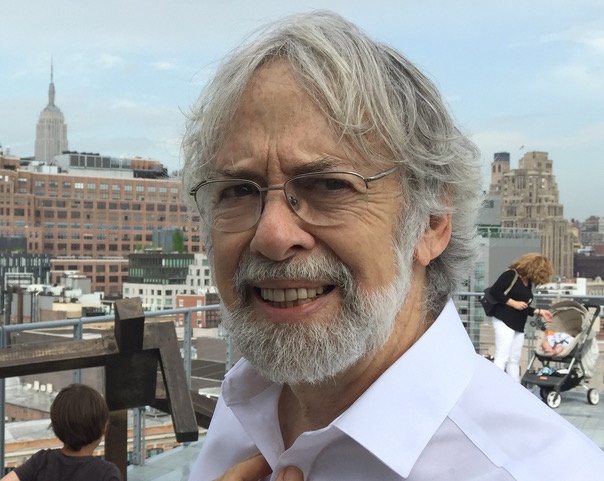 |
|
| photo: Carmen Boullosa | |
Mike Wallace is the author of Greater Gotham: A History of New York City from 1898 to 1919 (Oxford University Press, October 2, 2017), and co-author of its predecessor volume, Gotham: A History of New York City to 1898, which won the Pulitzer Prize. He is a Distinguished Professor of History at John Jay College of Criminal Justice, and at the City University of New York's Graduate Center. Wallace is also the founder of the Gotham Center for New York City History.
On your nightstand now:
Having been immersed for many years in early 20th-century New York, I'm catching up with the city's early 21st-century story, with the help of Juan González's Reclaiming Gotham: Bill de Blasio and the Movement to End America's Tale of Two Cities, Joseph P. Viteritti's The Pragmatist: Bill de Blasio's Quest to Save the Soul of New York and Chris McNickle's Bloomberg: A Billionaire's Ambition.
On the lighter side, I'm reading Deborah Crombie's A Finer End, number seven in the Duncan Kincaid & Gemma James series, which I've read from number one. But I'm also reading In a Dark House, 10 in the same series, which I've read backwards from number 17. As I approach the juncture point where eight meets nine, like the golden spike link-up between the Union Pacific and Central Pacific railroads, I have to report that while it's been an interesting experiment, from now on I'm sticking to chronological order.
Favorite books when you were a child:
I was drawn (or driven) to two types: the rambunctious and liberatory, and the restrictive and disciplined. Stars of the first category were Dr. Seuss's And to Think That I Saw It on Mulberry Street, and his Thidwick the Big-Hearted Moose. Both encouraged flights of fancy and rejection of rigid rules. Standouts in the second set include Tootle, about an adolescent locomotive who jumped the track to frolic in a meadow only to be terrorized by elder engines into "staying on the rails no matter what." Another youthful locomotive, hero of The Little Engine That Could, pluckily drags a heavy train up a hill, chanting his mantra, "I think I can, I think I can," thus demonstrating the virtue of pertinacity.
Your top five authors:
I don't have "tops" or "favorites" because my interests and values are constantly changing. Thidwick may have been a "top" at one time, but I've moved on, and continue to do so. Perhaps one way to reframe the question is to historicize it, to ask what are my current (and constantly shifting) favorites, and what in my current situation may explain their elevation. I have been deeply engaged with writing the history of New York, a city from which a staggering number of stellar books have emerged. For my work, I have written about novels that are set in Gotham, because they offer deep insights into the city's dynamics. Conversely, knowing the historical context enhances my reading pleasure, as I'm attuned to the references and sensibilities of the era. So Edith Wharton's House of Mirth or Custom of the Country are revelatory of class and gender realities, as is Theodore Dreiser's Sister Carrie, and they are the more delicious because I've got a handle on what they were up to. The same goes for other books that I'm reading for business and pleasure, by Henry James, James Weldon Johnson and Ernest Poole. Those are my top five of the moment. Catch me a year from now and I'll have a different list of favorites.
Book you've faked reading:
None that I can think of, probably because I'd immediately start being anxious. What if someone asked a probing question about Ulysses which I couldn't answer, my duplicity would be exposed, small children would follow me in the street shouting "Shame! Shame!" Maybe I was just never in a situation where the imaginable reward outweighed the all-too-likely risk.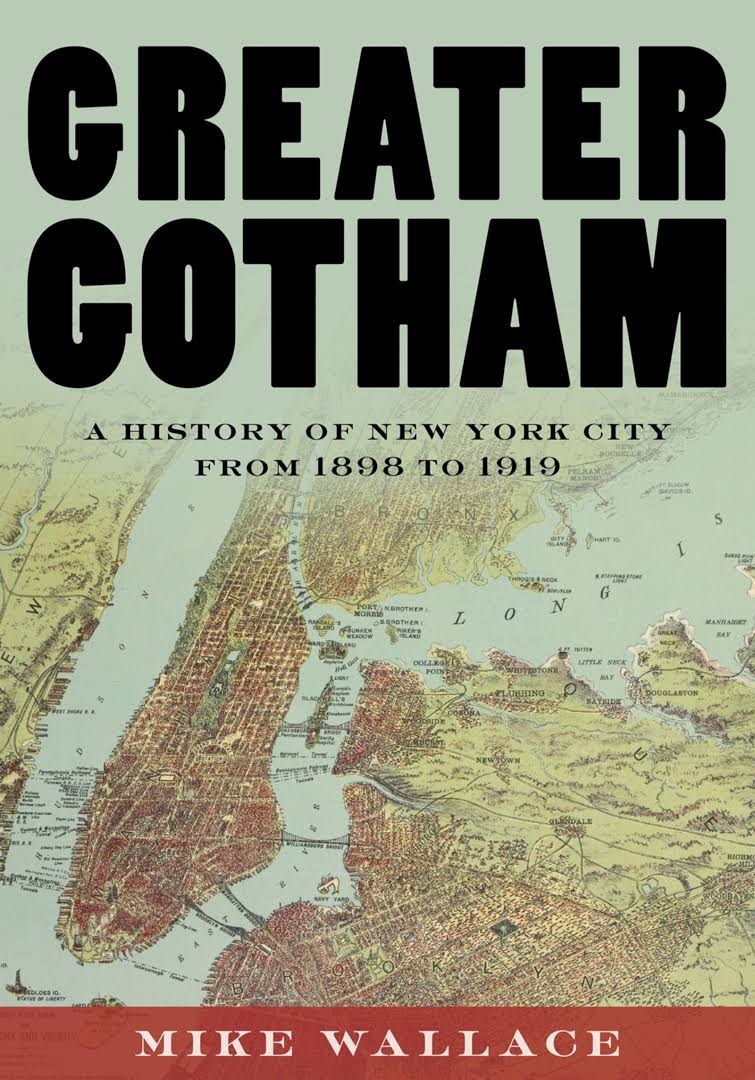 Book you're an evangelist for:
Book you're an evangelist for:
Carmen Boullosa's Texas: The Great Theft. Full disclosure: Carmen's my wife, but she's also one of Mexico's foremost authors. Texas takes off from a true story, a mini-invasion of the United States by Mexicans in 1859. By turns comedic and tragic, lyrical and enraged, it's a quintessential borderlands story, told from the Mexican side of the Rio Bravo. It's the perfect novel to read while Trump battles vainly for his wall.
Book you've bought for the cover:
Being a text rather than a graphics person, and a strong believer in the axiom that you "can't tell a book by its cover," the only cover I can even remember is that of my Mickey Mouse History. The designer came up with a handsome abstract design that only the most perceptive spotted as being an outline of Mickey's ears. I really liked it as art but, being well aware of Disney's militant propensity to defend its brand, I insisted on getting a legal opinion. The lawyers okayed the text, as the adjective "Mickey Mouse" appeared in dictionaries, but vetoed the image, convinced Disney would sue for copyright infringement. As a result, my one memorable cover was one that never came to be.
Book you hid from your parents:
Philip Roth, Portnoy's Complaint, lest my mother assume that I was reading it because Portnoy's complaint was the same as mine.
Book that changed your life:
None I can think of. I'm actually glad my life has not been so pliable, especially as if it happened once it might happen again, and I'm quite happy with my life as it is.
Favorite line from a book:
I don't know about favorite, but one that sticks with me, and one I've used to characterize other historical figures, was written by William H. Herndon about his law partner Abraham Lincoln: "His ambition was a little engine that knew no rest."
Five books you'll never part with:
None I can think of, especially as I'm of an age where deaccessioning is a desiderata, time to lighten the load. Besides, Internet downloadability means never having to say farewell forever--most books can be summoned back in a nanosecond--so, with the exception of those signed by the author, none of my volumes are sacrosanct.
Book you most want to read again for the first time:
J.G. Ballard's Empire of the Sun (1984), because I suspect the novel has to some degree been overwritten in my memory by Steven Spielberg's Empire of the Sun (1987). Ballard has written that while he was deeply moved by the film he "couldn't help feeling that my memories had been hijacked by someone else's." The only way to test this is to read the book again, but that's impossible, at least for me: hazy figures in the novel now summon up the sharply delineated figures of Christian Bale or John Malkovich. So a complete memory reset would be the only way to test the degree of transformation. But then what, keep the book memory pristine by never seeing the film again? Of course this conundrum is a generic phenomenon, a matter of the impact on reader memories of any book that's "covered" by a movie, a fact of life for books in a cinematic era.
Books you read for fun:
Detective stories. Particularly those strongly rooted in a sense of place. So, among others, the works of Raymond Chandler (L.A.), Batya Gur (Jerusalem), Jo Nesbø (Oslo), Reginald Hill (Yorkshire), Qiu Xiaolong (Shanghai), George Simenon (Paris), Rex Stout (Manhattan), Donna Leon (Venice), Louise Penny (Three Pines), Peter Lovesey (Bath), Andrea Camilleri (Sicily), Ian Rankin (Edinburgh) and Arthur Conan Doyle (London).
American Wolf: A True Story of Survival and Obsession in the West by Nate Blakeslee (Crown, $28 hardcover, 320p., 9781101902783, October 17, 2017)
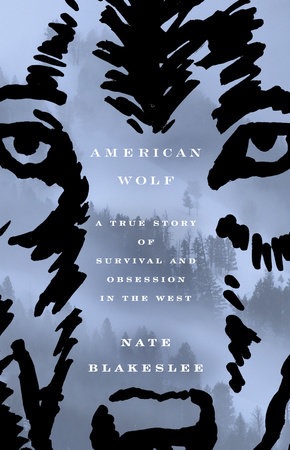 In 2008, investigative journalist Nate Blakeslee (Tulia, a PEN/Martha Albrand Award-finalist) became intrigued by the wolves of Yellowstone National Park, far from his Texas home. However, it was not until 2014 that he began to write of the life and death of its renowned alpha female wolf, O-Six. American Wolf is much more than a Discovery World special on wolf lore (although it includes plenty about wolves' habits and behavior), or a political discourse on the conflicts between conservationists and the rancher/hunters of the mountain states (although the issues of wolf preservation are political ones). Rather, it is a savory blend of hardcore journalism, biodiversity analysis, weather and terrain reporting and good old-fashioned storytelling.
In 2008, investigative journalist Nate Blakeslee (Tulia, a PEN/Martha Albrand Award-finalist) became intrigued by the wolves of Yellowstone National Park, far from his Texas home. However, it was not until 2014 that he began to write of the life and death of its renowned alpha female wolf, O-Six. American Wolf is much more than a Discovery World special on wolf lore (although it includes plenty about wolves' habits and behavior), or a political discourse on the conflicts between conservationists and the rancher/hunters of the mountain states (although the issues of wolf preservation are political ones). Rather, it is a savory blend of hardcore journalism, biodiversity analysis, weather and terrain reporting and good old-fashioned storytelling.
Once numbering in the millions, the continental United States wolf population was alarmingly low by 1920. Wolves suffered from the loss of their primary prey (bison), high demand for their pelts and aggressive bounties. With no wolf population to trim the herd, elk were overrunning Yellowstone and spilling into the surrounding states. In 1995, the Park Service decided to embed elk predator Canadian wolves into northeast Yellowstone's Lamar Valley. They not only survived, but thrived in the rough mountain terrain--and with the growing packs came biologists and tourists to observe the roaming wolves. An extraordinary mother, hunter and leader, a third-generation wolf was born in 2006 (hence the "O-Six" sobriquet). She became a star of the park--boldly defending her turf, raising pups from three litters and bringing down elk to feed her pack.
If American Wolf were only a detailed study of wolves in the wild, it would rather quickly grow old. But Blakeslee is after a bigger story. Intrinsic to the O-Six saga are the wolf-watchers and scientists charged with monitoring the reintroduction of wolves. Among them is Rick McIntyre, who came to be known as "the wolf guy." A loner, McIntyre spent his time with a high-powered scope looking at wolves and recording their activities. He knew them both by sight and by the official number of their radio collars. He knew when females went to den to deliver a new litter, when alphas were killed by other packs, when a calf was culled from a herd of elk for food. He wrote five million words in his field journals and didn't miss a day in the mountains for 10 years--a "Cal Ripken of wolf-watchers." From McIntyre's journals and interviews, Blakeslee gets the hard habitat details of O-Six's life.
The end for O-Six came with the federal government's 2012 decision to take wolves off the endangered species list in the states neighboring Yellowstone. Near the small Wyoming town of Crandall, lifelong hunter Steven Turnbull was in the Absaroka mountains when O-Six appeared in his gun sight. His kill shot made the New York Times under the headline: "Famous Wolf Is Killed Outside Yellowstone." Turnbull (a pseudonym) became a pariah in the conservationist world. As he later told Blakeslee, "She didn't tell me she was famous before I shot her." American Wolf is the story of an extraordinary wolf and those absorbed with her storied life. --Bruce Jacobs, founding partner, Watermark Books & Cafe, Wichita, Kan.
Shelf Talker: Journalist Nate Blakeslee explores the lineage, habitat and behavior of Yellowstone National Park's most famous wolf and the people with a personal and professional stake in wolf management.
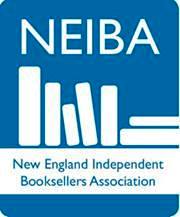 I didn't tell anyone at the time, but my invisible friend during this year's New England Independent Booksellers Association Fall Conference in Providence, R.I., was the ghost of Elizabeth Peabody, who opened a little bookshop in Boston, at 13 West Street, in 1842. It was her first NEIBA show. She had a great time.
I didn't tell anyone at the time, but my invisible friend during this year's New England Independent Booksellers Association Fall Conference in Providence, R.I., was the ghost of Elizabeth Peabody, who opened a little bookshop in Boston, at 13 West Street, in 1842. It was her first NEIBA show. She had a great time.
Elizabeth (She doesn't like being called Liz.) has been haunting me a little bit since I read the new Henry David Thoreau biography by Laura Dassow Walls this summer.
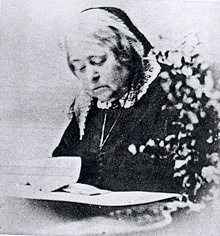 |
|
| Elizabeth Palmer Peabody | |
Her bookshop only gets a couple of mentions: It sold high-end pencils (an early venture into sidelines) made by Thoreau's family business for 75 cents ("For a time, one could have purchased there both writings by Henry Thoreau and a 'John Thoreau and Son' pencil with which to mark them."); and Bronson Alcott rented rooms next to her bookshop "to hold his Conversations, which Thoreau attended whenever he could."
I want to know more, so I'm working on it. In The Peabody Sisters: Three Women Who Ignited American Romanticism, Megan Marshall writes that opening the bookshop put Elizabeth at the center of the Transcendentalist movement, "and she welcomed it." The shop "served as a meeting place and mail drop, a clubhouse open to a widening circle of reformers.... By opening her bookstore, Elizabeth would one day recall, 'I came into contact with the world as never before.' "
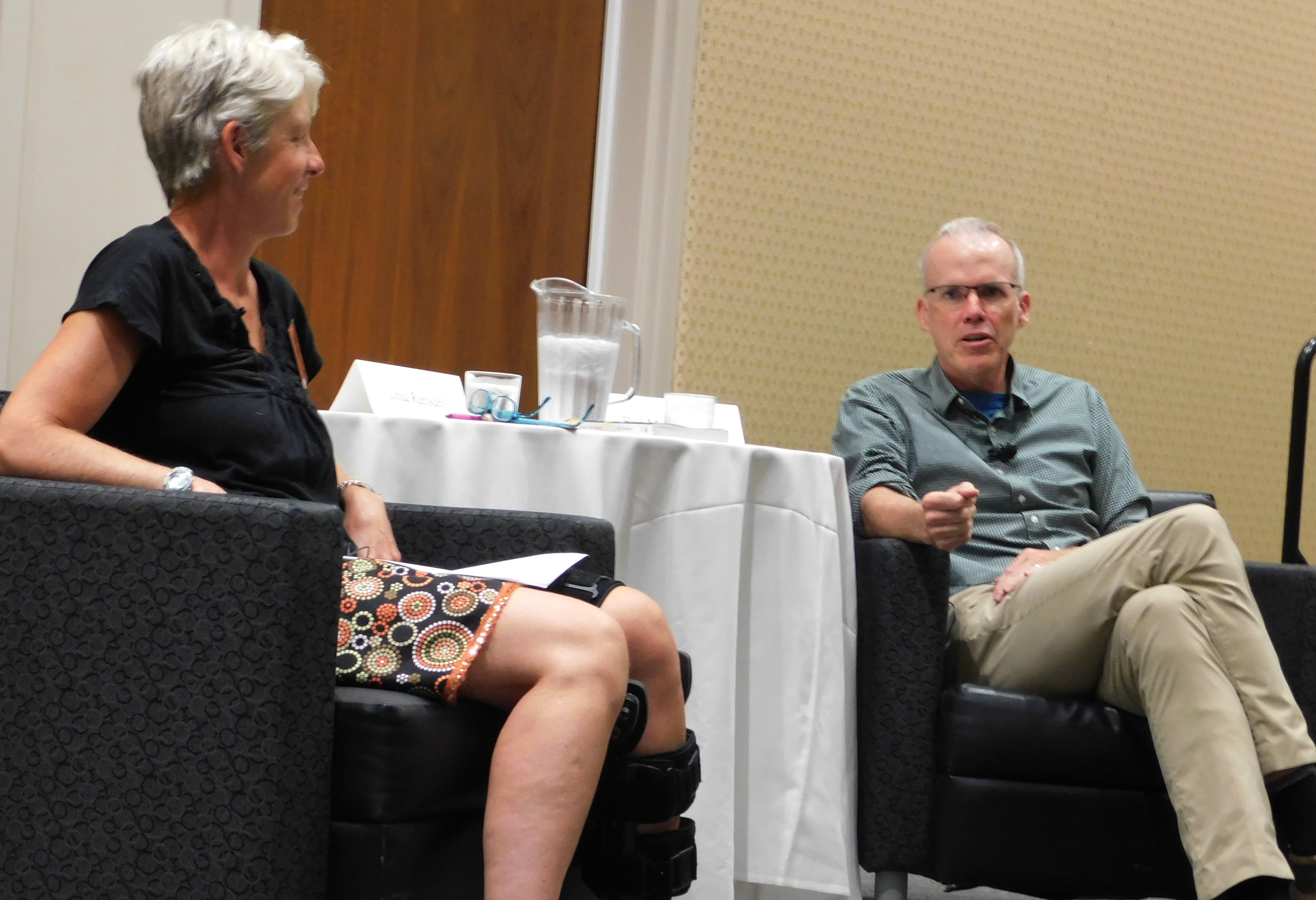 |
|
| Linda Ramsdell with Bill McKibben | |
So Elizabeth was hovering nearby during the opening keynote, which featured Linda Ramsdell, former owner of the Galaxy Bookshop in Hardwick, Vt., interviewing Bill McKibben about his upcoming novel, Radio Free Vermont (Blue Rider Press, November 7).
Elizabeth seemed to like what she heard, as far as I could tell. She can be hard to read.
Ramsdell said she'd read McKibben's novel "as really a love story to Vermont.... but at a deeper level, I think it's also a love story to neighborliness and civility and participatory democracy. One of my favorite lines in the book is, 'Listen to your neighbors at Town Meeting and follow your heart.' "
McKibben agreed, calling the annual tradition of Town Meeting Day "the best holiday on the Vermont calendar. To do the business of your local place with your neighbors in the way that Vermonters have done it from the beginning is as close to a kind of feeling of democracy as we get in this world. It's amazing how well it works. And one of the things it enforces is a certain level of neighborliness and civility."
Beyond that one day a year, however, McKibben said it is more important than ever to have everyday community centers where a sense of neighborliness can thrive: "Indie bookstores, as you know... in many places are one of the two or three hubs in the community where people are in and out. In New England, the food co-op is another one and maybe the library if you're lucky enough to have a good library."
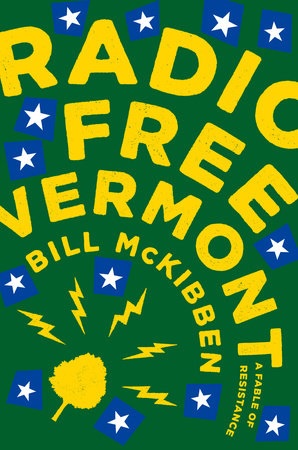 Indie booksellers also fulfill an "unlikely role that we wouldn't have thought of even a few years ago; of having to stand up for the idea that facts and reality matter, are to be taken seriously. And so, we are continuing to figure out the role that bookstores have taken on in our lifetime, of having to be the Chautauquas of our moment where people come for information and for programs and for all of that. In the best case, they accomplish all of those things and more.
Indie booksellers also fulfill an "unlikely role that we wouldn't have thought of even a few years ago; of having to stand up for the idea that facts and reality matter, are to be taken seriously. And so, we are continuing to figure out the role that bookstores have taken on in our lifetime, of having to be the Chautauquas of our moment where people come for information and for programs and for all of that. In the best case, they accomplish all of those things and more.
"It's not really fair to load it all on the backs of independent booksellers that they have to fulfill that kind of role, but it is maybe the most important role that you have at the moment because no one else is doing that. I mean, who else is bringing people through town to talk? So, thank you for it."
The good news, McKibben noted, is "there's an incredible appetite for it, a growing appetite for it. And one of the things that's going to happen, I'm convinced, out of the Trump administration and the moment we're in, is that more and more people are going to understand what a bad idea it was to let these institutions and these ideas wither, and the necessity of having connections to the factual real world.... We're all pressed into service in ways that maybe we shouldn't have to be."
For those of us who live in the book world, "I don't know what to tell you," McKibben said, adding: "Always try to do what you do in a way that's open to the possibility of neighborliness.... Scale has always been one of the things I've written about the most. Deep Economy was the closest examination of this thing, but I've always been convinced that the degree to which we can move a lot of our political and economic life closer to home, then our government makes a lot more sense than it makes at the moment.... The one underlying lesson of this book is that's where we need to go. If we do that, and when we do that, we have no choice but to engage people. That works a lot better close to home... partly because everybody knows everybody.... We have to engage people."
My new friend Elizabeth Peabody "believed that a book shop ought to not merely sell books but should function more widely as a meeting place for authors and readers to congregate, discuss and purchase books." Some good ideas never go out of fashion.